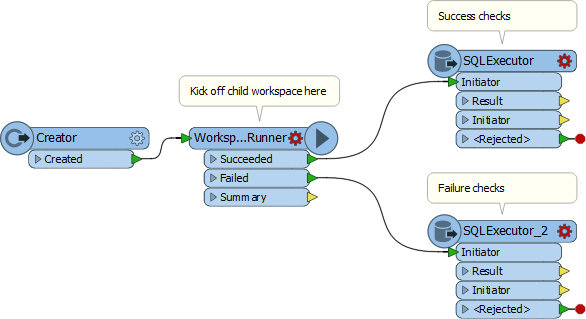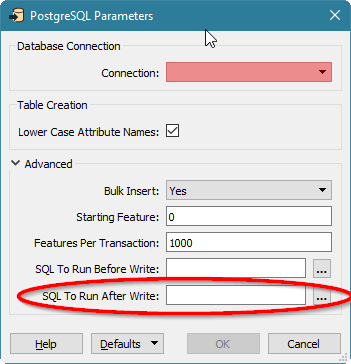Hi,
I have a big workspace that can potentially stop at different steps because the workspace is going through multiple readers and some of them can have no features.
Is there a way to execute a SQL script whenever the workspace is stopping ?
The goal of this script is to check some integrity rules in the database (Postgres).
Maybe the python shutdown script could do that but maybe there is a simpler way.
Thank you for any help.










